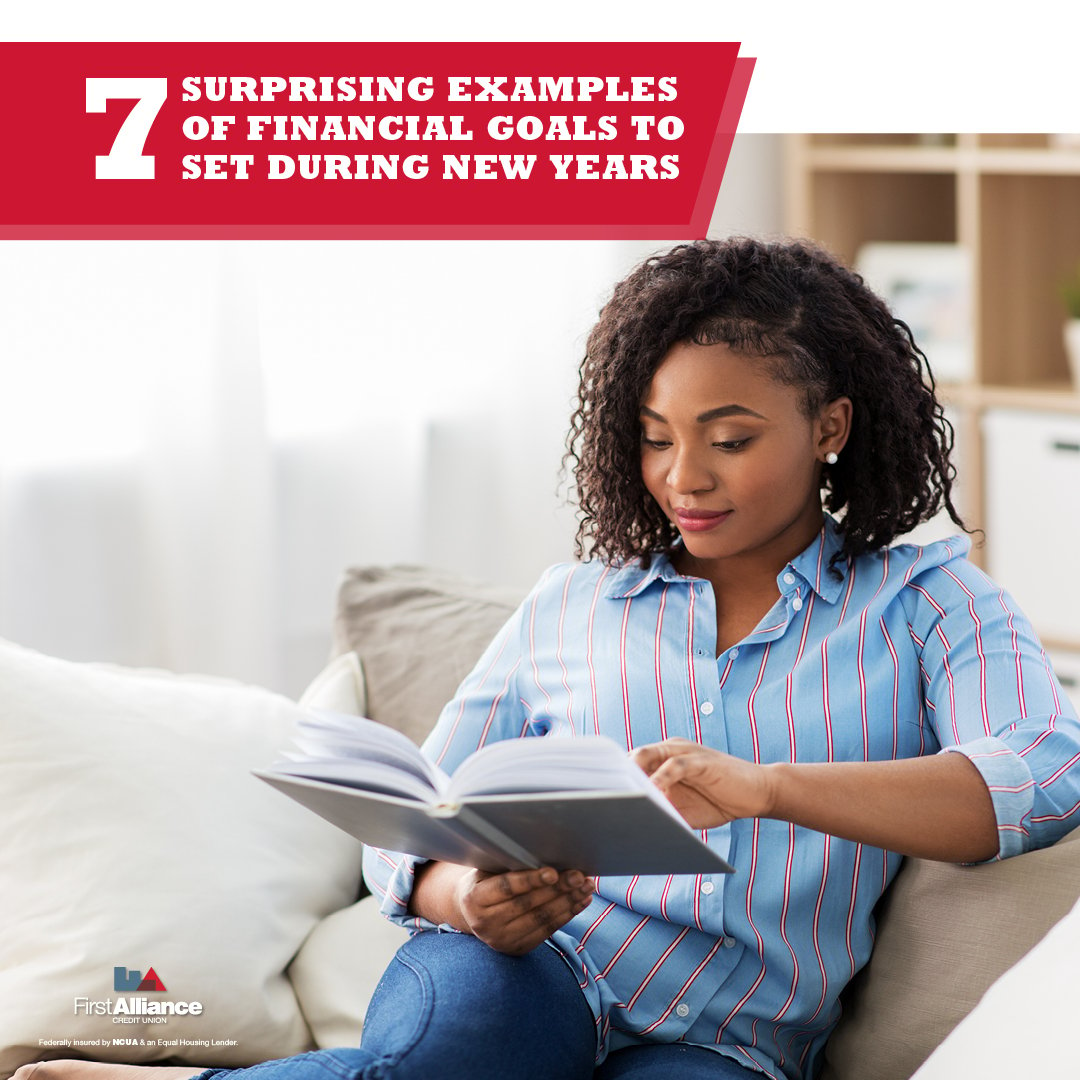7 Surprising Examples Of Financial Goals To Set During New Years
If your New Year's resolutions involve money, you're not alone. According to one report, nearly half of Americans are making finance-related...

One of the most exciting parts of being in your 20s is the amount of control you now have over your life. You can choose where you live, where you work and even how you spend your money. Of course, with that freedom comes a lot of responsibility, and this is especially true when it comes to money. You’ll be able to buy anything you can afford, but you’ll also be responsible for paying your bills on time, taking care of repairs and emergencies and even planning for your retirement.
All this responsibility can be daunting for anyone in their twenties, but the good news is that when you set the right financial goals, you can create a rock-solid financial platform for yourself that will pay off for the rest of your life. Even better, we’ve created a list of these goals so you don’t have to guess what they are.

The first and most important goal to set in your 20s is to create a comprehensive spending plan, also known as a budget. This financial blueprint is crucial because it serves as the foundation for managing your income and expenses effectively.
Now that you have a career job and have money coming in, you’ll want to spend it as effectively as possible. That’s where a spending plan comes in.
Creating a spending plan for your monthly income puts you firmly in control of your money. You’ll know exactly how much you’re spending on necessary expenses like rent, gasoline and electricity each month, and as a result you’ll know how much you’ll have left over to spend on things like clothes and eating out. Even better, you can review your spending plan and change how you use your money as you see fit.
If you’d like to create a spending plan, you’ll need to make a list of all your monthly expenses, such as:
You’ll also want to include how much you spend on each of them. Next, you’ll add all your monthly expenses together and subtract that amount from your monthly income. If you have money left over you’re in good shape, but if not you’ll need to trim your expenses until the amount equals your income.
Sharp-eyed readers might notice that this process is the same one you use to create a budget, and we confess, you’re right. A spending plan is essentially a budget, but when you call a budget a spending plan, you’re moving away from the joyless reputation budgets have and focusing on the positive aspects a budget offers.
Saving money in your 20s is a crucial step towards achieving long-term financial stability and independence. This decade of your life is an ideal time to establish strong saving habits that will benefit you for years to come. By prioritizing saving in your 20s, you can build a financial cushion that provides peace of mind and opens up opportunities for future investments and experiences.
Nothing derails your finances the way an emergency does. One car accident or a trip to the emergency room can leave you with hundreds of dollars of debt to pay off, if not thousands. When you have an emergency fund, though, you can protect yourself against these surprise expenses.
Most financial experts recommend having at least six months’ worth of salary saved in your emergency fund, but when you’re just starting to save you should concentrate on saving regularly instead. Try to save at least 10% of each paycheck if you’re able. If money is tight, though, look through your spending plan and determine what you can reasonably set aside each month.
The sooner you start saving for your retirement, the more you get to take advantage of two powerful forces—time and compound interest. Both of these can cause your money to grow exponentially faster than if you start saving for retirement in your 30s or 40s.
Your first step in saving for your retirement should be to see whether your employer offers a retirement account, like a 401(k). If they do, take advantage of it and start contributing a percentage of your paycheck. How much you should contribute is up to you, but the recommended amount is around 15% of your paycheck.
By setting clear goals and taking proactive steps to manage your debt in your 20s, you can pave the way for a more secure and financially stable future.
Nothing drags down your finances like debt. Not only do you have to pay back the amount you borrowed, but you’ll also need to pay off the interest your debt has earned.
If you have debt, take the time to come up with a debt payment strategy and stick with it until your debt has been paid off. You might also consider getting a debt consolidation loan that will condense all your payments down to one monthly payment, and likely give you a lower interest rate as well.
A low credit score can hurt your ability to get approved for loans and mortgages. It might even disqualify you from a job! A good credit score, though, not only gives you a better chance of getting approved for loans and mortgages, it can even give you a better interest rate.
The quickest way to build up your credit score is to get a credit card and use it responsibly. If you’ve never used a credit card before, limit it to small purchases and use it once or twice a month. For instance, you might use it to buy coffee and pay off your balance at the end of the month.
Another way is to use a credit builder loan. This is a unique financial tool that has a credit union put the amount you borrowed in a certificate of deposit instead of giving it directly to you. You’ll select the amount you’re “borrowing” and the terms of the loan, and then pay off the loan as you normally would.
Once you’ve made your final payment, though, we’ll transfer the funds from the certificate of deposit into your account that you can use to save, invest or put towards a financial goal. Your credit report will show that you’ve taken out a loan and paid it off, and you’ll feel more confident the next time you want to take out a loan.
One of the best ways to build up your credit score, though, is to make sure that all your bills are paid on time each month. Credit reporting bureaus factor this heavily when determining your credit score. It’s worth pointing out that creating a spending plan can go a long way toward ensuring you always have money available to pay your bills.
Setting good financial goals in your 20s can give you an advantage that will last the rest of your life. In addition to preparing for your retirement, you should also create an emergency fund and pay off any debts as soon as possible. All this is immensely easier when you have a monthly spending plan that you review regularly.
You can get help reaching financial goals like these when you become a member of First Alliance Credit Union. You can use our free downloadable budget template to create a spending plan, and keep your emergency fund in a traditional savings account, then transfer it to a high-yield money market account once you’ve built it up. You can also use our online banking platform and mobile app to monitor all your accounts, pay your bills and even make payments to your friends with Zelle.

If your New Year's resolutions involve money, you're not alone. According to one report, nearly half of Americans are making finance-related...

Setting financial goals is easy. Achieving those goals, though, is a bit harder. A lot of people have goals that they’ve perpetually delayed, or even...
.jpg)
Setting savings goals is a crucial step towards financial stability and independence. It provides a clear path to follow and helps you stay focused...